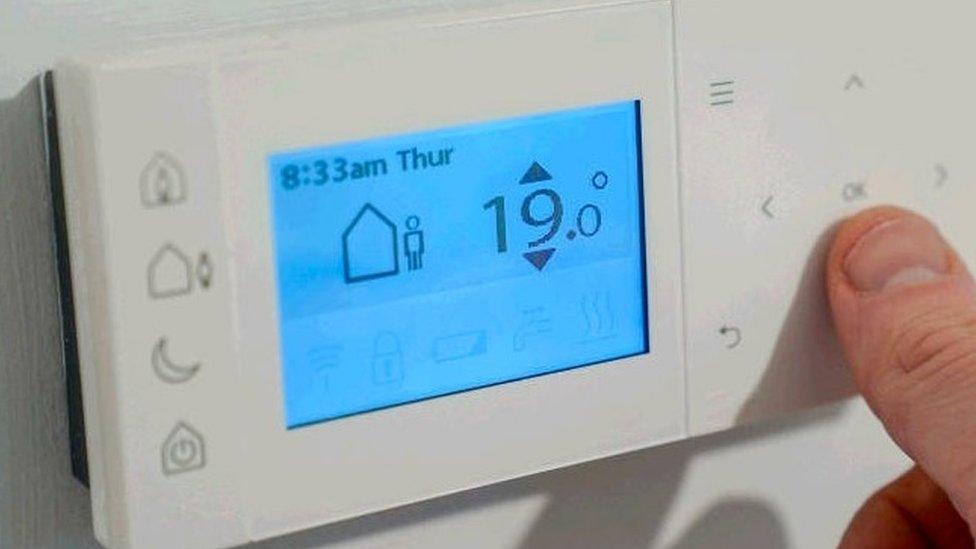Cost of living: The 'lucky' caravan couple facing a freezing future
- Published
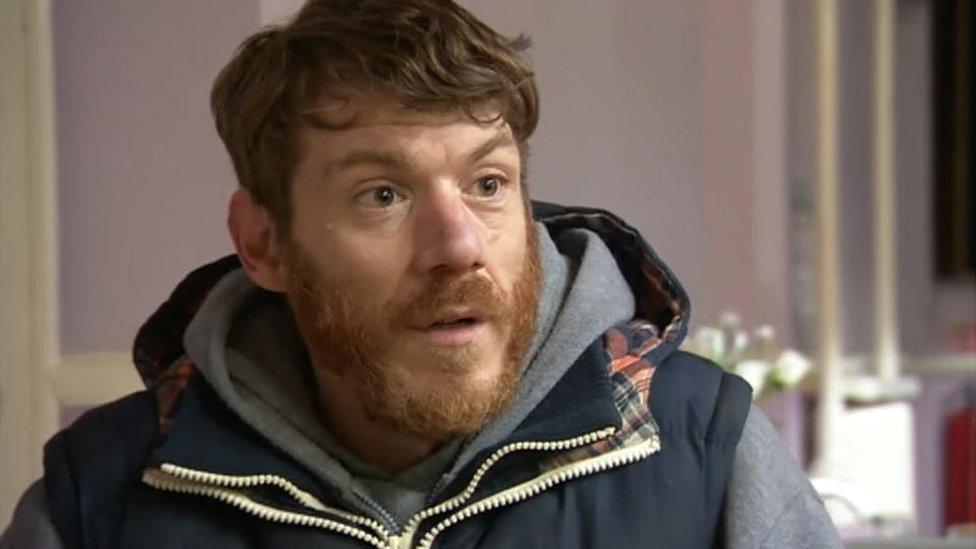
Wayne Cooper says he wakes up with ice on the inner walls of his caravan
As temperatures plunge, people fearful of turning on their heating amid rising energy costs have been heading to warm spaces. BBC Look North's Linsey Smith visited a community centre in Lincolnshire to hear one couple's plight.
This morning, Wayne Cooper and his partner woke up shivering in their cramped caravan on the outskirts of Boston.
Ice clung to the walls, inside as well as out, as blankets - their best chance of conserving body heat tonight - lay drenched from condensation in a heap. They know there is little chance they will dry.
The pair are among rising numbers coming to rely on the good will of others just to survive the sub-zero temperatures.
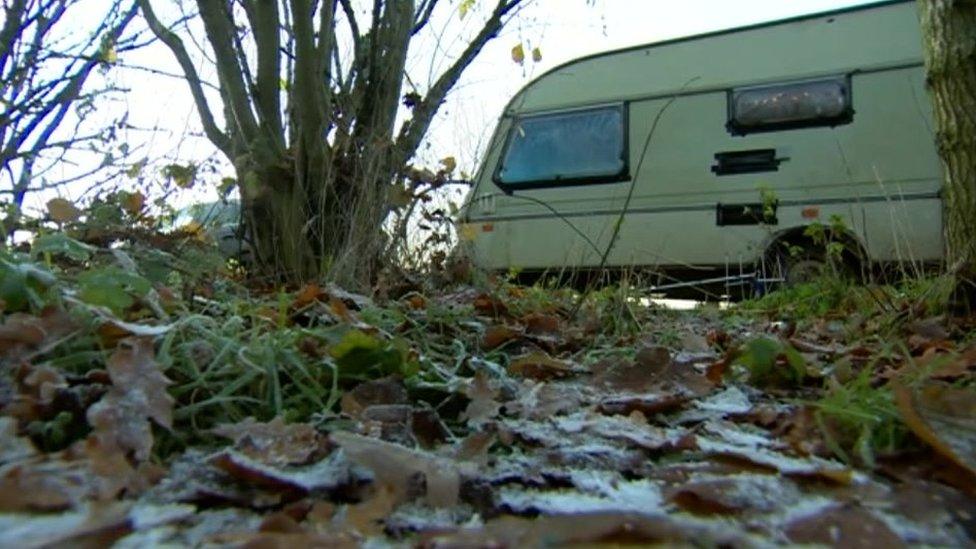
Wayne Cooper's caravan on the outskirts of Boston
The couple clasp mugs of tea in Boston's Centenary Church, one of a number of buildings across Lincolnshire that have recently been designated warm zones.
"Me, the missus and our three cats were just curled up under the blankets," Wayne tells us, describing the morning routine.
When we arrived at this warm space, 25 people were waiting to come in. When we leave we count 80. Hot meals are offered and demand is high, we are told.
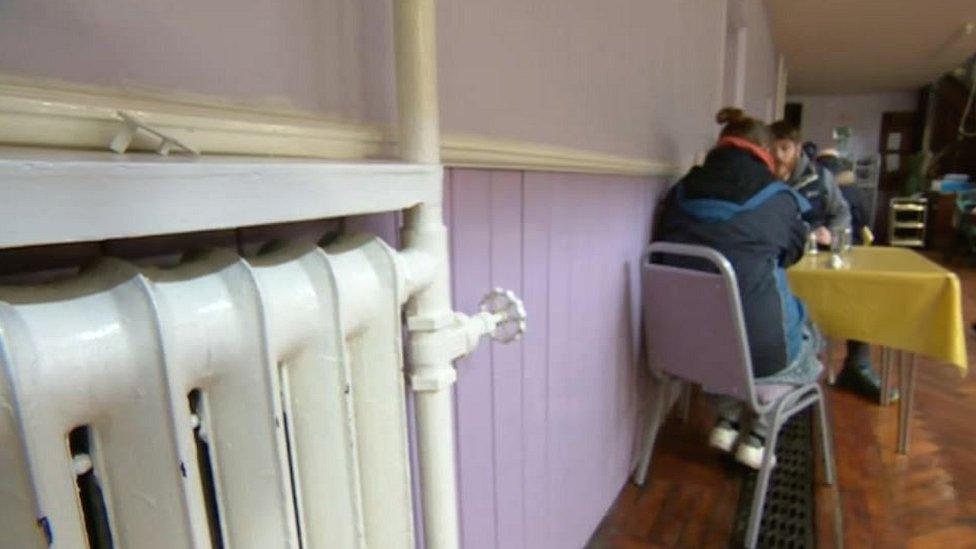
Wayne Cooper and his partner keep warm in Centenary Methodist Church, Boston
The building's central heating system has been working overtime these past few days, with volunteer Joanna Criddle warning it is struggling under the pressure, mirroring the plight of the people it warms.
"We opened at the beginning of December," she says, above the sound of chatter and cutlery from the hall. "Since then, it has been really cold. People have been coming in for a hot drink and they have really appreciated it. We're glad they're coming."
Under the current energy price guarantee, which was announced in October, a household using a typical amount of gas and electricity can expect to pay £2,500 annually. But it is still too high for many of the poorest households.
"The number are high now," states Joanna.
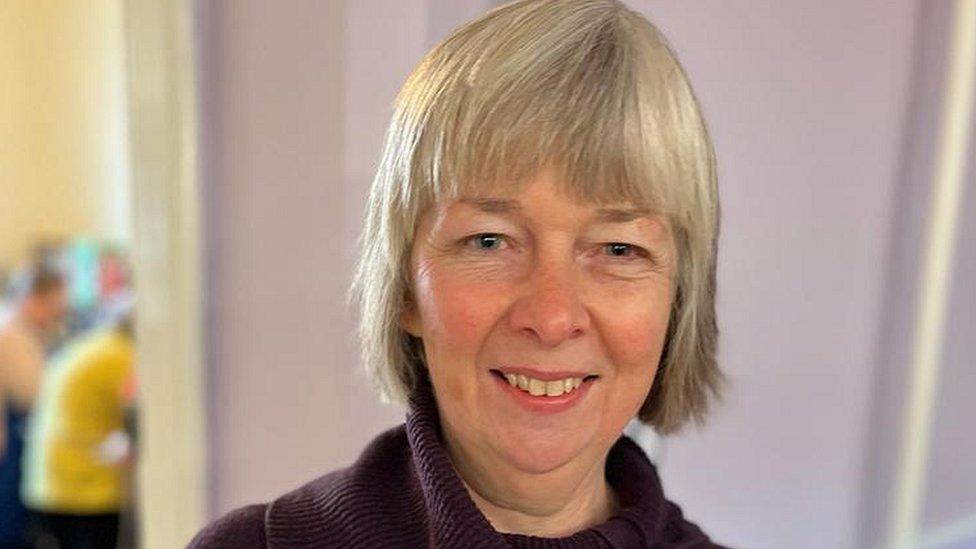
All are welcome to call the warm space, says volunteer Joanna Criddle (pictured)
She praises the "incredible response" from the public, helping keep the warm space open.
"We've had people donating for the lunches, we've had people bringing fresh vegetables and tins and people volunteering for Christmas Day, which is wonderful."
With feeling returned - albeit only temporarily - to their hands and feet, we accompany Wayne and his partner back to their accommodation to see their predicament for ourselves
The thin door is closed quickly behind us.
As Wayne tells us of their struggles, vapour billows from his mouth. Both he and his partner are wearing multiple layers, but their bodies still shake uncontrollably. "It's getting so difficult just to get by," says Wayne, who is also sporting a baseball cap and gloves. "We sleep in our clothes because it's that cold. You can see the amount of bedding we have."
Outside the caravan, over a bucket of hot coals, a kettle boils; this couple's only relief on a day the temperature barely rises above freezing.
Despite their grim predicament and with temperatures plummeting to as low as -7C (20F) in this part of Lincolnshire, Wayne remains upbeat. "We've got each other and a roof over our heads," he says. "So we're lucky."

Analysis by Linsey Smith, News Correspondent
'Warm Spaces' seemed like an emergency solution to the bleak winter ahead, when they were conceived at the back end of summer.
We visited church halls in the September sun as they prepared. There was still hope: surely things will not get so bad, that they will ever be full?
Today in Boston, Lincolnshire, we were proved wrong.
There are few empty chairs in the church hall. Warm coffee is flowing.
Some visitors can be seen chatting to friends. Another is sitting quietly doing a word search.
Just keeping warm until they have to return home.
This warm space is open thanks to volunteers from the community. But their resources are not unlimited.
They are battling the same cost-of-living crisis as today's guests.
This week's challenge: an ailing boiler. They are hoping another volunteer comes to their rescue. Thankfully, hope is free.

Follow BBC East Yorkshire and Lincolnshire on Facebook, external, Twitter, external, and Instagram, external. Send your story ideas to yorkslincs.news@bbc.co.uk, external.
Related topics
- Published13 December 2022
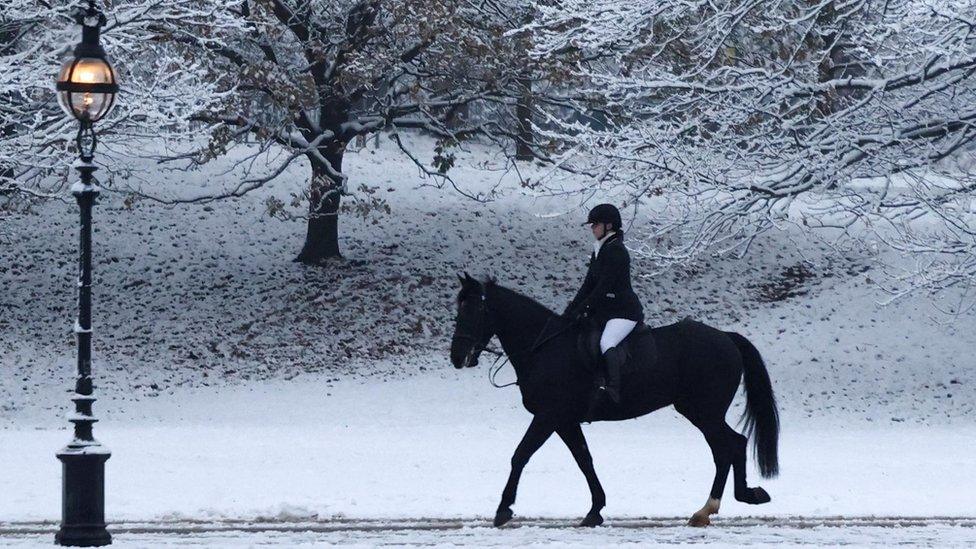
- Published12 October 2022
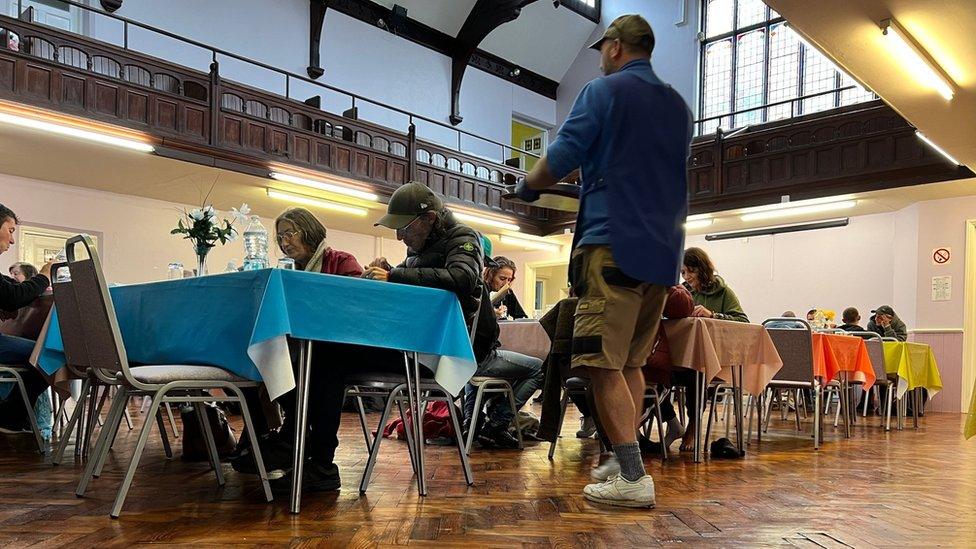
- Published15 September 2022
